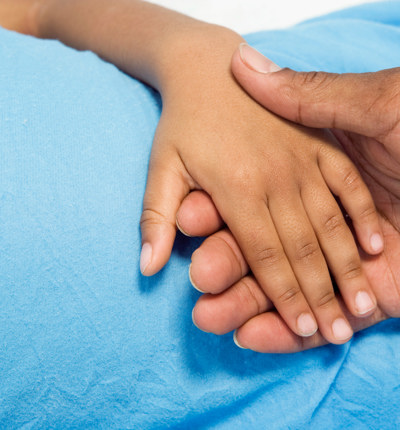
Six-figure settlement for mother who suffered perineal tear during childbirth
A woman has received more than £600,000 in settlement from Homerton University Hospital NHS Trust after she suffered a third degree tear during the birth of her child.
Posted on 08 June 2020
The failure to repair the severe tear left the woman suffering bowel incontinence, post traumatic stress disorder and depression.
In late 2013, the woman, who we have called N to protect her identity was admitted to the hospital in Hackney for induction of labour as she had not gone into labour spontaneously. After being given the drug, Syntocinon, it was noted that the Cardio Tachograph (CTG) showed that the fetal heart rate was decelerating.
It was decided that a ventouse cup would be used to assist delivery. After attempting to use the cup, the method was abandoned in favour of forceps, and the delivery was assisted by episiotomy.
After the birth, the episiotomy and what was thought to be a second degree tear were repaired in the delivery suite. N complained the next day of a swollen perineum, but she was reassured that there was nothing wrong and she was discharged.
N experienced severe and increasing pain in her vagina, perineum and anus after she was discharged. She was in too much pain to breastfeed and so she struggled to bond with her newborn baby.
After a while, the extreme pain eased, but N started to realise she was incontinent of flatus and often leaked faeces. In 2014, it was discovered that she had a 3C tear (the most severe type of third degree tear) along her perineum.
As a result of the extent of her injuries, N suffered PTSD and depression. She worked in a professional role in an office and found her symptoms embarrassing and difficult to manage. Her embarrassment eventually led to the Claimant giving up her job and finding alternative employment in a less formal environment.
She has had to try many different techniques to assist her with managing day to day life with her incontinence symptoms. She was unable to give birth to her second child naturally. Whilst her symptoms can be improved by treatment, N will have to endure them for the rest of her life.
Leigh Day medical negligence partner, Brendan Hope secured over £600,000 settlement for N after arguing that the ventouse cup should not have been abandoned in favour of forceps in the circumstances of this case, and that if the ventouse cup had been used N would not have suffered the 3C tear.
He also argued that even if the use of forceps had been appropriate, the extent of the tear should have been identified and repaired at the time and, if this had happened, N would not suffer with the symptoms of incontinence that she does.
Homerton University Hospital NHS Foundation Trust accepted that doctors should have identified and repaired the 3C tear at the time of delivery but denied that change to the use of forceps was inappropriate.
Settlement was reached taking account of both parties’ positions shortly before trial. The settlement money compensates N for the loss of a career that she loved and will help N gain access to the expensive sacral nerve stimulation which is required to help her manage her incontinence symptoms.
N said:
“This was a difficult case for me to pursue but I am very glad that I did. The symptoms I suffer were not things that I wanted to focus on or talk about, but they had a significant effect on my family, my mental health and on other aspects of my life including my job, and so I knew it was the right thing to do.
“The trust had denied it made any mistakes when I complained to it about my treatment before I instructed Leigh Day and I was pleased that the trust accepted it was negligent for some of my treatment part-way through my case.
“The damages I will receive will enable me to get the treatment I need to reduce my symptoms and to help me to cope with them in the future. I truly hope that the trust will learn lessons from the errors they made in my treatment so that other women do not suffer similar injuries unnecessarily in the future.”
Brendan Hope said:
“Severe perineal tears can leave women with significant long-term problems when they are not treated properly after the delivery of their child. Every woman has the right to expect that hospitals identify and repair tears after their labour and provide any necessary follow up treatment after that.
"I am glad that we have been able to secure this substantial sum to help our client address the significant issues she has been left to face following the birth of her first child.”



